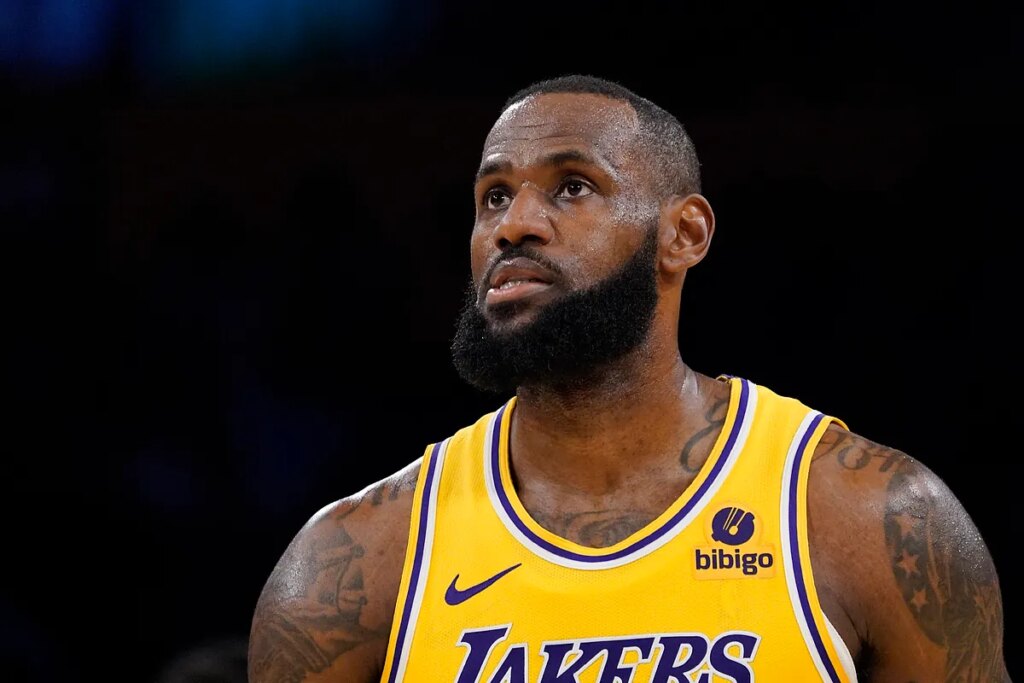LeBron James has intensified debate over the NBA’s relationship with China by co-writing an opinion piece for People’s Daily, the main publication of the Chinese Communist Party.
In the article, the Los Angeles Lakers forward described basketball as a unifying force between nations, calling it “a bridge that connects us.”
The op-ed followed James‘s latest visit to China, his 15th overall. His tour included appearances in Shanghai and Chengdu, where he met fans and youth players.
James spoke of basketball’s power to inspire, particularly among younger generations. He highlighted his perspective as a parent, writing that the sport can encourage young people “to pursue their dreams.”
James‘s deep ties to China extend beyond his athletic profile. Since entering the NBA in 2003, he has been one of Nike’s most prominent endorsers.
The company has relied heavily on Chinese manufacturing since the late 1980s, though its supply chain has been criticized. Nike has faced allegations of indirect links to forced labor involving the Uyghur population in Xinjiang.
The firm has denied sourcing from the region but acknowledged the difficulty of auditing suppliers that rely on migrant labor.
In a 2022 statement, Nike admitted that monitoring such practices across international borders presents “challenges” for the company and its vendors.
Revisiting the 2019 Hong Kong dispute
James‘s new collaboration with Chinese state media brings renewed focus to the 2019 controversy involving the NBA and political activism.
That year, then-Houston Rockets executive Daryl Morey posted a message supporting pro-democracy protests in Hong Kong.
His brief statement prompted a strong backlash from Beijing, leading to the suspension of NBA broadcasts in China and estimated financial losses of up to $400 million.
At the time, James criticized Morey, describing him as “misinformed” and questioning the timing of the post, which coincided with NBA preseason games in China.
The reaction to James‘s comments was sharp. Protesters in Hong Kong displayed images portraying him as complicit with Beijing, including altered depictions of him in place of tanks from the 1989 Tiananmen Square crackdown and as Mao Zedong.
Critics in the United States also accused James of prioritizing his commercial relationships over free speech and human rights concerns.
Despite the backlash, James has remained a major figure in China. His visits consistently draw large audiences, and his association with Nike keeps him central to the country’s basketball culture.
The op-ed signals a continued effort to maintain that relationship, positioning James not only as an athlete but also as a cultural intermediary.
The NBA has also sought to repair ties with the Chinese market since the 2019 fallout. League games have returned to Chinese networks, and preseason contests are scheduled in Macau under a new multi-year deal.
Events tied to that arrangement will feature former NBA players, including Shaquille O’Neal and Stephon Marbury.
In concluding his essay, James expressed gratitude for the reception he receives on each trip. He wrote that he and his family are “deeply moved” by the hospitality shown in China, pledging to show appreciation through his performance on the court.
The publication of the op-ed highlights the ongoing tension between the NBA’s commercial objectives and broader political concerns. For James, it reinforces his dual role as both one of the league’s most influential athletes and one of its most visible figures in China.
Read the full article here

